 I met Matthew W. Quinn last year at DragonCon, where he attended one my panels on the various flavors of publishing: traditional, self, hybrid, wooden ink-block…you get the idea. Anyway, he has a book coming out, a nifty bit of teen horror called The Thing in the Woods, and it promises to be quite the page-turner.
I met Matthew W. Quinn last year at DragonCon, where he attended one my panels on the various flavors of publishing: traditional, self, hybrid, wooden ink-block…you get the idea. Anyway, he has a book coming out, a nifty bit of teen horror called The Thing in the Woods, and it promises to be quite the page-turner.
James R. Tuck even has a warning on the cover: “Turn the lights on before you read this, it’s a scary one!” Have you met James? Really wonderful guy — also big and strapping and unlikely to scare easily. Ergo, that’s a heck of an endorsement.
But as it happens, The Thing in the Woods has roots in something real-world scary: the Great Recession, the craptastic economic collapse of 2008-2009. Here’s Matthew to tell us more about it:
Economics is called “the dismal science,” largely because it tells people they can’t have everything they want. And it’s not just the science of numbers and money — it’s the science of choices, and it flows through everything in our lives, including my new teen horror novel The Thing in the Woods.
For starters, Thing began when I was home from college visiting the East Cobb Borders bookstore, a store that no longer exists in a chain that no longer exists. Why does it no longer exist? The article gives several reasons, including a giant debt load that the Great Recession and its accompanying drop in sales made worse, failure to embrace new technologies like the Internet and e-books, and embracing CD sales when people started buying music online. People chose faster and more computerized ways to purchase their media, Borders chose not to cater to them, and ultimately collapsed.
But what was it at Borders that inspired Thing? I was reading a Call of Cthulhu manual discussing a possible scenario in which scary rural communities where isolated people worship powers from Beyond become suburbanized. The phrase I can still recall is “supernatural Love Canal.” Love Canal was a town in New York where a neighborhood, and in particular a couple schools, had been built on top of what was, unknown to them, a toxic waste dump.
And the town of Edington, the setting of Thing, is just such a “Love Canal.” And economics plays a role there too. Villain Phil Davidson owns an independent barbecue restaurant in the South Atlanta town of Edington and prides himself on the quality of his product and the higher wages he pays his employees. But as the town floods with Atlanta transplants seeking cheaper housing and lower taxes (there’s choice again–they trade longer commute for lower cost of living), the chains they’re familiar with follow. He faces competition from more generic — but lower-priced — options that cut into his profits. Although his business model has worked well in the past, it is slowly becoming non-competitive. And Mr. Davidson just happens to be the high priest of a coven that has been worshiping a tentacle monster in the local woods for hundreds of years. The teenage children of the Atlanta transplants he resents become targets for his wrath when one of them sees some things he ought not.
Some of the imagery in the book also emerges from economics. When the native Edington teens challenge the Atlanta transplant teens to an ATV race, the rivals gather at a “pipe farm.” This is a term I first heard when working for The Griffin Daily News, when a city planning official discussed a neighborhood abandoned before construction was complete. Rows of lots with foundations and pipes sticking out of the ground and no finishing the job in sight. I saw one with my own eyes when I went cycling on the Forsyth County Greenway not long afterward. That neighborhood was eventually built years later, but for quite awhile it sat there desolate. The same with a horse-farm near my old apartment in Lovejoy that was bulldozed for a condominium complex that was never built and essentially reverted to nature for several years.
One key principle of economics, the basis for it being “the dismal science,” is scarcity. Basically, wants are unlimited and resources are limited, so people have to make choices. One area where choices are important is government spending. Even the U.S. government, despite having the tax base of the wealthiest nation on the planet, can’t have “guns and butter” both. The time the U.S. tried led, the era of both Vietnam and the Great Society, massive inflation was the result. Generally speaking, the U.S. has chosen to spend its resources on defense rather than European-style welfare states or even keeping infrastructure up to date.
And with a defense budget larger than many nations’ combined, that allows for money to get “lost” or spent on strange line-items nobody really notices. In many cases “lost” money lines someone’s pockets. But what if that money goes to fund something else, as Jeff Goldblum’s irascible father in the film Independence Day suggests when he claims the $500 hammers and toilet seats don’t actually exist? We see a representative of that something else at Phil’s barbecue restaurant, at the final battle in the tree farm, and afterward.
Who might this be? Well, look at what entity is the dominant player in Mr. Martinez’s books. We’ll be learning more about them in my planned sequel, The Atlanta Incursion. But until then, you have The Thing in the Woods to enjoy.
Mr. Martinez. Dude, I turn 45 next week. Don’t remind me.
Anyway, I like me a good secret-coven-sacrificing-suburban-teens story, and The Thing in the Woods is on sale for 99 cents until June 5. You’ve spent more on coffee, right? Go check it out!
#SFWApro

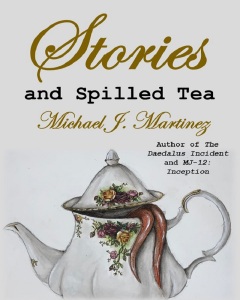


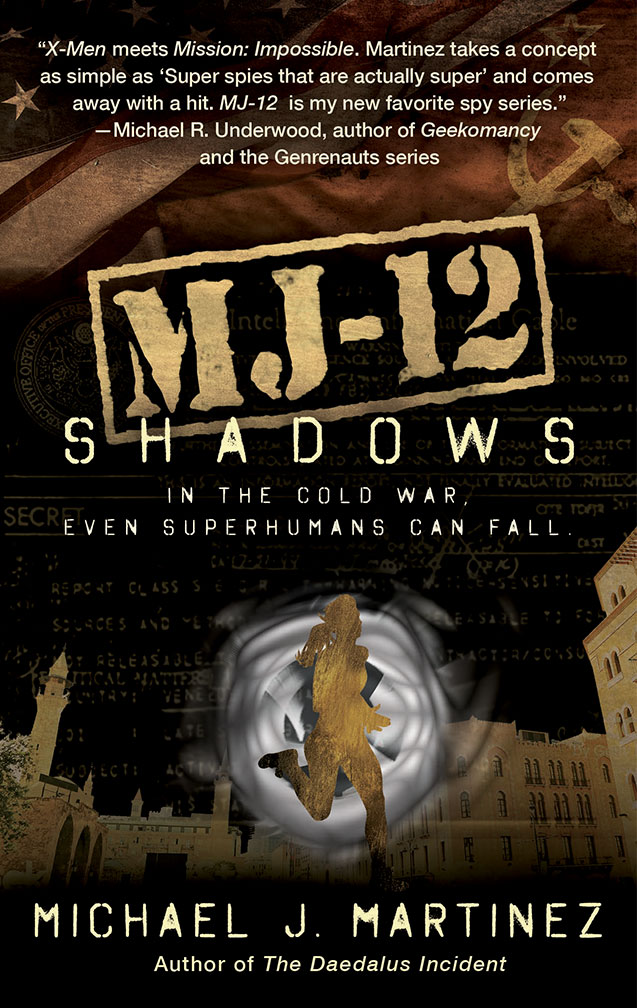

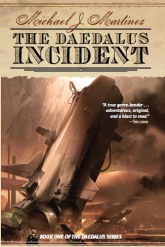
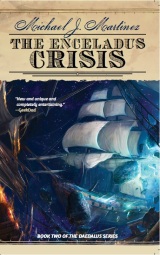
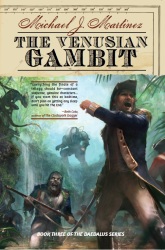
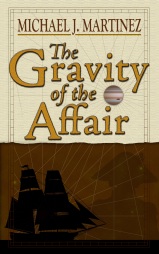

Sounds like a very interesting read. Matt worked at the GDN while I was publisher there. He was a great guy, everyone in town liked him including me. I’m proud of him.